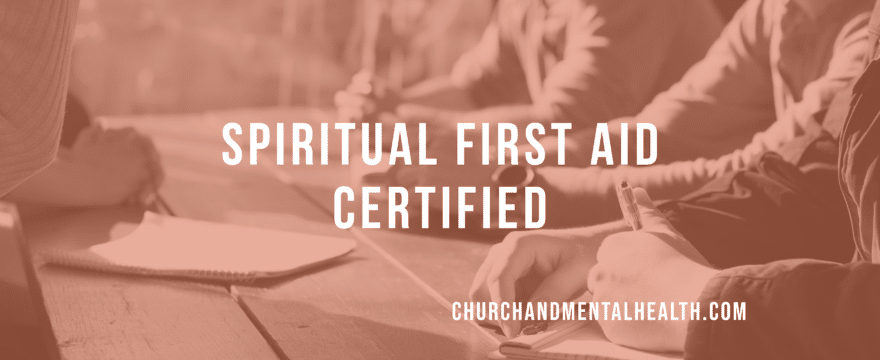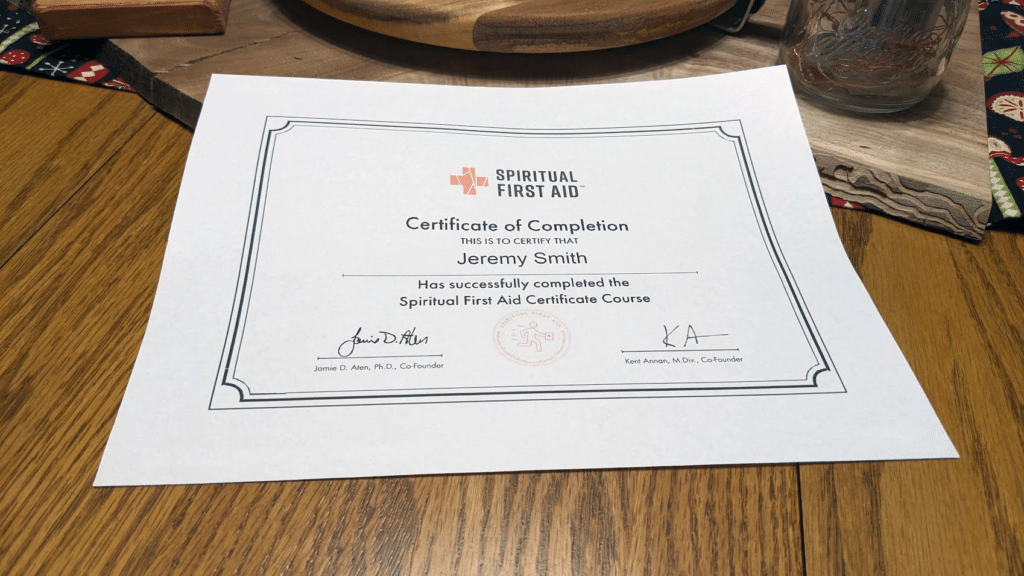Earlier this year, I shared with you about a new resource I had found called Spiritual First Aid. As a quick recap, Spiritual First Aid is a certification course that teaches peer-to-peer spiritual and emotional care. It’s a six-session, on-demand video course that comes with several downloads for each session, and three bonus sessions.
Since that review, three things have changed:
- I was able to meet with one of the Partner Directors for the organization to hear about the purpose behind it and the mission of the organization.
- They added three bonus sections on Helping Children and Adolescents, Self-Aid to Avoid Burnout, and Turning Your Church Into a Trauma-Informed Community on top of their six-session course.
- I was able to take the course myself and have since become certified in Spiritual First Aid as well as reviewed the bonus sessions.
In the last five months, I have found myself taking a different track that I want to share with you. In my previous review, I stated that Spiritual First Aid is not my first or even second option for churches in educating staff, volunteers, and the Church in mental health issues to reduce stigma and reduce barriers to helping people who need it get care. The best option is for churches to find a Christian counselor or agency to put on a training as you will develop relationships for referrals in the future as well as a specific consultant. There are other options that I previously was recommended for training, but having now completed this, my mind is changed.
Christian Counselors Can Facilitate Training
While I still will recommend first and foremost that churches and ministries work directly with Christian counselors, I now am confident in saying that Christian counselors should use this training specifically for their training as it addresses suicidality, scopes of practice, coping skills, de-escalation techniques, self-care, and way more than I could cover myself.
Further, because of the on-demand nature of the training, the staff can complete the training and bonus material in a few hours in gaps of their own worktime as a foundation for the training and the training can be spent roleplaying, answering ministry site specific questions, collaboration and referral strategies between the counselor/agency and the church, or any other tailored approach.
To be clear:
- Christian counselors who want to network with churches, complete this course so you can facilitate it as an already-made resource for training.
- Pastors and ministry leaders, I hope you are looking for training for your team. Go ask Christian counselors to provide training for your team and/or volunteers and then ask them if they would use this specific one.
Resources Available
The resources that come with the training are practical tools you can use in your pastoral care, skills your volunteers can use, and practices you can implement right away. It comes with several blank worksheets to use with individuals to help better organize and visualize what is being discussed, tools to lead prayers or discussions, and protocols written out to be referenced later.
See how your leadership can integrate them into ministry with discipleship, small groups, counseling, other pieces of training, and even handouts to the congregation and community. It’s a valuable resource that is already available for you to use.
(Note: All outside links on this article are affiliates and so for any of your purchases, we do receive some compensation.)

